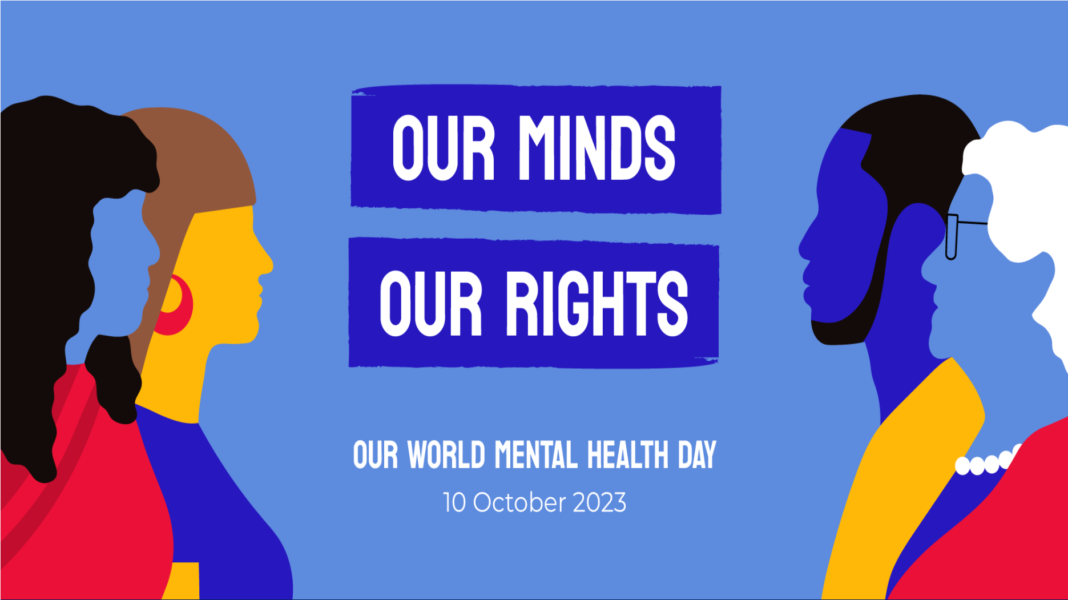为迎接世界精神卫生日,世界卫生组织(WHO)和人权事务高级专员办事处(OHCHR)今天联合推出了一份题为“心理健康、人权和立法的指导和实践”。 目标是支持各国 改革法律以消除侵犯人权行为 并改善获得优质精神卫生保健的机会。
精神病学中的侵犯人权和强制做法
医疗保健领域的侵犯人权和胁迫做法在全球范围内持续存在,而且往往得到现行法律和政策的支持。 这些包括住院治疗和 不合格生活条件的治疗,以及身体上的, 许多心理健康服务机构普遍存在心理和情感虐待.
自2006年《联合国残疾人权利公约》通过以来,尽管一些国家努力修改其法律、政策和服务,但只有少数国家采取措施大规模修改相关立法。 这是结束这些虐待行为并促进精神卫生保健领域权利所必需的。
世卫组织总干事谭德塞博士强调:“心理健康是健康权不可分割的组成部分设立的区域办事处外,我们在美国也开设了办事处,以便我们为当地客户提供更多的支持。“
他还认为,这 更新指南 将使各国能够做出改变,以提供高质量的精神卫生保健,促进个人康复并尊重他们的尊严。 这使患有健康状况和社会心理障碍的人们能够在社区内过上充实和健康的生活。
沃尔克土耳其人联合国人权事务高级专员强调,转变精神卫生服务的重要性不仅在于其覆盖范围,还在于其核心价值观,确保其真正符合每个人的需求和尊严。 他表示,本出版物为基于权利的方法如何促进卫生系统内所需的转型提供了指导。
鼓励基于社区的有效心理保健
政府在精神卫生方面的支出大部分分配给精神病医院,特别是在高收入国家,占预算的 43%。 然而,有证据表明,与精神卫生保健机构模式相比,基于社区的护理服务不仅更容易获得,而且更具成本效益和效率。
该指南概述了加速去机构化进程和建立基于人权原则的面向社区的精神卫生保健方法的步骤。 这包括实施立法,逐步用包容性社区支持系统和主流服务(例如收入支持、住房援助和同伴支持网络)取代机构。
杜绝虐待行为
据启动活动的参与者和所有参与指导方针的人说,杜绝这种现象至关重要。 心理健康方面的强制做法。 这些做法,如拘留和强迫治疗、隔离和限制,侵犯了个人就自己的医疗保健和治疗选择做出知情决定的权利。
此外, 越来越多的证据表明这些胁迫做法对身心健康产生影响。 它们使现有条件恶化 并将个人与其支持网络隔离。
该指南建议在精神卫生服务中纳入消除胁迫的条款。 它强调了建立知情同意作为所有心理健康干预措施基石的重要性。 此外,它还就如何在法律框架和政策范围内处理案件而不诉诸强制措施提供了建议。
采用基于权利的心理健康方法
认识到促进健康不仅仅限于医疗保健领域,这一新指南针对的是参与起草、修改和实施与心理健康相关法律的立法者和政策制定者。 这包括解决贫困、不平等和歧视等问题的立法。
该指南还包括一份清单,供各国评估其健康相关立法是否符合国际人权义务。 此外,它还强调了向有经验的个人和代表他们的组织寻求建议的重要性,这是这一过程的重要组成部分。 它还强调了教育和提高对权利相关问题的认识的重要性。
虽然该指南提出了一套可作为立法框架的原则和规定,但它承认各国可以根据自己的具体情况灵活调整和调整这些原则和规定。 这包括考虑背景、语言、文化敏感性、法律体系等因素,同时维护人权标准。
10 月 2023 日,世界卫生组织 (WHO) 与社区一起庆祝 XNUMX 年世界精神卫生日,主题是“精神健康是所有人的一项基本权利”。
大量重要的致谢清单
本指南的制定和协调由 Michelle Funk 和 Natalie Drew Bold 领导,世界卫生组织 (WHO) 心理健康和药物使用司 Dévora Kestel 与经济、社会和文化权利科共同全面监督联合国人权事务高级专员办事处(人权高专办)。 撰写团队 本出版物由世卫组织和人权高专办联合撰写。 代表世卫组织 Alberto Vásquez Encalada(瑞士顾问)、Michelle Funk(世卫组织心理健康和药物滥用司)和 Natalie Drew Bold(世卫组织心理健康和药物滥用司)。 代表人权高专办经济、社会和文化权利科工作人员。 WHO and OHCHR would like to thank the following individuals and organizations for their valuable contributions, feedback and inputs: External contributors and reviewers Natalie Abrokwa (University of Groningen, Kingdom of the Netherlands), Nazish Arman (Shuchona Foundation, Bangladesh), Peter Bartlett (Centre for Mental Health and Human Rights, Institute of Mental Health, Nottingham University/WHO Collaborating Centre on Mental Health, Disability and Human Rights, United Kingdom of Great Britain and Northern Ireland), Shreya Bhardwaj (Charles University, Czech Republic), Valerie Bichelmeier (Make Mothers Matter, France), Joann Bond (Attorney General’s Chambers and the Ministry of Legal Affairs, Guyana), Mauro Giovanni Carta (University of Cagliari, Italy), Francesca Centola (Mental Health Europe, Belgium), Pyali Chatterjee (ICFAI University, India), Dixon Chibanda, (Friendship Bench and University of Zimbabwe, Zimbabwe), María Soledad Cisternas (former Special Envoy of the United Nations Secretary-General on Disability and Accessibility, Chile), Lee Allison Clark (Native Women’s Association of Canada, Canada), Jarrod Clyne (International Disability Alliance, Switzerland), Ria Mohammed-Davidson (Attorney at Law, Human Rights and Mental Health, Trinidad and Tobago), Maria de Lourdes Beldi de Alcântara (Universidade de São Paulo, Brazil), Eric Diaz Mella (Centro de Reorganimación Regional y Observatorio Social, Chile), Robert Dinerstein (American University Washington College of Law, the United States of America), Zuzana Durajová (Charles University, Czech Republic), Julian Eaton (CBM Global, the United Kingdom), Elisabetta Pascolo Fabrici (Azienda Sanitaria Universitaria Giuliano Isontina (ASUGI)/WHO Collaborating Centre for Research and Training in Mental Health, Italy), Alexandra Finch (Georgetown University, the United States), Leon Garcia (Centro and Hospital das Clínicas, Brazil), Neeraj Gill (Griffith University, Australia), Guilherme Gonçalves Duarte (Permanent Mission of Portugal in Geneva, Ministry of Foreign Affairs, Portugal), Piers Gooding (La Trobe Law School, Australia), Lawrence Gostin (O’Neill Institute for National and Global Health Law at Georgetown University Law Center, Georgetown University/WHO Collaborating Center for National and Global Health Law, the United States), Kristijan Grđan (Association for Psychological Support Croatia, Croatia, and Mental Health Europe, Belgium), Vivian Hemmelder (Mental Health Europe, Belgium), Edgar Hilario (Department of Health, Philippines), Torsten Hjelmar (Citizens Commission on Human Rights Europe, Denmark), Mushegh Hovsepyan (Disability Rights Agenda, Armenia), Dr Irmansyah (The National Research and Innovation Agency, Indonesia), Simon Njuguna Kahonge (Ministry of Health, Kenya), Olga Kalina (Georgian Network of (Ex)Users and Survivors of Psychiatry, Georgia, and the European Network of (Ex)Users and Survivors of Psychiatry (ENUSP), Denmark), Elizabeth Kamundia (Kenya National Commission on Human Rights, Kenya), Sylvester Katontoka (Mental Health Users Network of Zambia, Zambia), Brendan Kelly (Trinity College Dublin, Ireland), Hansuk Kim (Ministry of Health and Welfare, Republic of Korea), Seongsu Kim (Dawon Mental Health Clinic, Republic of Korea), Bernard Kuria (Ministry of Health, Kenya), Karilė Levickaitė (NGO Mental Health Perspectives, Lithuania, and Mental Health Europe, Belgium), Carlos Augusto de Mendonça Lima (World Psychiatric Association Section of Old Age Psychiatry, Switzerland), Laura Marchetti (Mental Health Europe, Belgium), Claudia Marinetti (Mental Health Europe, Belgium), Nemache Mawere (Ingutsheni Central Hospital, Zimbabwe), Felicia Mburu (Article 48 Initiative, Kenya), Roberto Mezzina (International Mental Health Collaborating Network and World Federation for Mental Health, Italy), Kendra Milne (Health Justice, Canada), Angelica Chiketa Mkorongo (Zimbabwe Obsessive Compulsive Disorder Trust, Zimbabwe), Guadalupe Morales Cano (Fundación Mundo Bipolar and European Network of (Ex)Users and Survivors of Psychiatry, Spain), Fabian Musoro (Ministry of Health, Zimbabwe), Macharia Njoroge (Championing for Community Inclusion in Kenya, Kenya), Nasri Omar (Ministry of Health, Kenya), Cheluchi Onyemelukwe-Onuobia (Babcock University, Nigeria), Hazel Othello (Ministry of Health, Trinidad and Tobago), Gemma Parojinog (Commission on Human Rights, Philippines), Soumitra Pathare (Indian Law Society, India), Eduardo Pinto da Silva (Ministry of Foreign Affairs, Portugal), Gerard Quinn (UN Special Rapporteur on the Rights of Persons with Disabilities, Ireland), Carlos Rios-Espinosa (Human Rights Watch, the United States), Gabriele Rocca (World Association for Psychosocial Rehabilitation and WAPR Human Rights Committee, Italy), Jean-Luc Roelandt (Service de recherche et de formation en santé mentale, Etablissement Public de Santé Mentale (EPSM) Lille Métropole/Centre collaborateur de l’OMS pour la Recherche et la Formation en Santé mentale, France), Marta Rondon (Instituto Nacional Materno Perinatal, Peru), Artur Sakunts (Helsinki Citizens’ Assembly – HCA Vanadzor, Armenia), San San Oo (Aung Clinic Mental Health Initiative, Myanmar), Liuska Sanna (Mental Health Europe, Belgium), Josep Maria Solé Chavero (Support-Girona Catalonia, Spain), Slađana Štrkalj Ivezić (University Psychiatric Hospital Vrapče, Croatia), Charlene Sunkel (Global Mental Health Peer Network, South Africa), Kate Swaffer (Dementia Alliance International, Australia), Bliss Christian Takyi (St.









